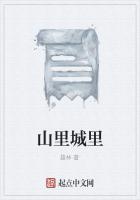Who Is the Greatest?
On returning to Capernaum, Jesus did not repair to the well-known resorts where He had taught the people, but with His disciples quietly sought the house that was to be His temporary home. During the remainder of His stay in Galilee it was His object to instruct the disciples rather than to labor for the multitudes.
On the journey through Galilee, Christ had again tried to prepare the minds of His disciples for the scenes before Him. He told them that He was to go up to Jerusalem to be put to death and to rise again. And He added the strange and solemn announcement that He was to be betrayed into the hands of His enemies. The disciples did not even now comprehend His words. Although the shadow of a great sorrow fell upon them, a spirit of rivalry found a place in their hearts. They disputed among themselves which should be accounted greatest in the kingdom. This strife they thought to conceal from Jesus, and they did not, as usual, press close to His side, but loitered behind, so that He was in advance of them as they entered Capernaum. Jesus read their thoughts, and He longed to counsel and instruct them. But for this He awaited a quiet hour, when their hearts should be open to receive His words.
Soon after they reached the town, the collector of the temple revenue came to Peter with the question, "Doth not your Master pay tribute?"
This tribute was not a civil tax, but a religious contribution, which every Jew was required to pay annually for the support of the temple. A refusal to pay the tribute would be regarded as disloyalty to the temple,--in the estimation of the rabbis a most grievous sin. The Saviour's attitude toward the rabbinical laws, and His plain reproofs to the defenders of tradition, afforded a pretext for the charge that He was seeking to overthrow the temple service. Now His enemies saw an opportunity of casting discredit upon Him. In the collector of the tribute they found a ready ally.
Peter saw in the collector's question an insinuation touching Christ's loyalty to the temple. Zealous for his Master's honor, he hastily answered, without consulting Him, that Jesus would pay the tribute.
But Peter only partially comprehended the purpose of his questioner. There were some classes who were held to be exempt from the payment of the tribute. In the time of Moses, when the Levites were set apart for the service of the sanctuary, they were given no inheritance among the people.
The Lord said, "Levi hath no part nor inheritance with his brethren; the Lord is his inheritance." Deut. 10:9. In the days of Christ the priests and Levites were still regarded as especially devoted to the temple, and were not required to make the annual contribution for its support. Prophets also were exempted from this payment. In requiring the tribute from Jesus, the rabbis were setting aside His claim as a prophet or teacher, and were dealing with Him as with any commonplace person. A refusal on His part to pay the tribute would be represented as disloyalty to the temple; while, on the other hand, the payment of it would be taken as justifying their rejection of Him as a prophet.
Only a little before, Peter had acknowledged Jesus as the Son of God; but he now missed an opportunity of setting forth the character of his Master. By his answer to the collector, that Jesus would pay the tribute, he had virtually sanctioned the false conception of Him to which the priests and rulers were trying to give currency.
When Peter entered the house, the Saviour made no reference to what had taken place, but inquired, "What thinkest thou, Simon? of whom do the kings of the earth take custom or tribute? of their own children, or of strangers?" Peter answered, "Of strangers." And Jesus said, "Then are the children free." While the people of a country are taxed for the maintenance of their king, the monarch's own children are exempt. So Israel, the professed people of God, were required to 434maintain His service; but Jesus, the Son of God, was under no such obligation. If priests and Levites were exempt because of their connection with the temple, how much more He to whom the temple was His Father's house.
If Jesus had paid the tribute without a protest, He would virtually have acknowledged the justice of the claim, and would thus have denied His divinity. But while He saw good to meet the demand, He denied the claim upon which it was based. In providing for the payment of the tribute He gave evidence of His divine character. It was made manifest that He was one with God, and therefore was not under tribute as a mere subject of the kingdom.
"Go thou to the sea," He directed Peter, "and cast an hook, and take up the fish that first cometh up; and when thou hast opened his mouth, thou shalt find a piece of money: that take, and give unto them for Me and thee."Though He had clothed His divinity with humanity, in this miracle He revealed His glory. It was evident that this was He who through David had declared, "Every beast of the forest is Mine, and the cattle upon a thousand hills. I know all the fowls of the mountains; and the wild beasts of the field are Mine. If I were hungry, I would not tell thee: for the world is Mine, and the fullness thereof." Ps. 50:10-12.
While Jesus made it plain that He was under no obligation to pay the tribute, He entered into no controversy with the Jews in regard to the matter; for they would have misinterpreted His words, and turned them against Him. Lest He should give offense by withholding the tribute, He did that which He could not justly be required to do. This lesson would be of great value to His disciples. Marked changes were soon to take place in their relation to the temple service, and Christ taught them not to place themselves needlessly in antagonism to established order. So far as possible, they were to avoid giving occasion for misinterpretation of their faith. While Christians are not to sacrifice one principle of truth, they should avoid controversy whenever it is possible to do so.















